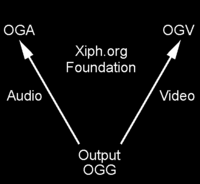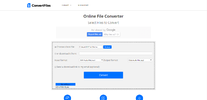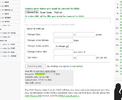User:Wildgoosespeeder/Help:Media: Difference between revisions
mNo edit summary |
m (Text replacement - "<span +class="?explain"? *(style="?color: *inherit;?"?)? *title="([^"\n]+)" *>([^<\n]+)<\/span>" to "{{hover|$3|$2}}") |
||
| Line 36: | Line 36: | ||
|- | |- | ||
| [[Wikipedia:Internet Explorer|Internet Explorer 9+]] | | [[Wikipedia:Internet Explorer|Internet Explorer 9+]] | ||
| | | {{hover|Prompts for download|Anything older than IE9 will do this anyway but is a deprecated browser because no HTML5 compliance}} | ||
|- | |- | ||
| [[Wikipedia:Microsoft Edge|Microsoft Edge]] | | [[Wikipedia:Microsoft Edge|Microsoft Edge]] | ||
Latest revision as of 09:25, September 16, 2022
- Main article: Help:Media
| ATTENTION EDITORS If you are moving files that this page links to, you have my permission to ask a sysop to change the link. If you are replacing images that this page links to instead, please leave me a message to give me a heads-up. Thank you! Wildgoosespeeder (talk) (Stats - Contribs) |
Super Mario Wiki has the ability to upload OGG files (with the extension of .ogv, .oga, or ogg) for audio and video purposes, in addition to the normal image function.
Wikipedia, and therefore all MediaWiki-software wikis, allow only this type of format because it is royalty-free and an open format, unlike MP4, MP3, and AAC formats.[1] While there is much complexity to the OGG format, Super Mario Wiki will only be using Theora for video and Vorbis for audio.
Acceptable Content
This is copyrighted content. Use Fair use to the best of your ability. This isn't a website to host content illegally.
Audio Clips
Short audio clips for certain characters are accepted in this wiki, since having a few audio samples is a solid method of illustrating a character's personality and voice. Audio clips can also be used to supplement the quote pages, but it should not be overdone. After all, the wiki is not a database for every sound clip from every game, so make sure the audio clip you want to upload is significant. Random sound effects and short grunts, for instance, are inappropriate unless they are generally well-known. Another good use for audio samples is to illustrate the history of the character's voice. Several characters have received a variety of voice actors during their history, but even characters that have used the same voice actors (such as Waluigi, who is always voiced by Charles Martinet) can benefit from having a variety of audio clips.
Ideally, audio samples should have minimal-to-no background noises. If an audio clip needs to be presented in a way that background audio cannot be eliminated easily, such as special events in Comic Con, where Mario and others talk, these should be in video format and be used as an external link, not as an audio file.
Music Clips
Music clips are also acceptable, but it is recommended that they fade out after the song loops once back to an earlier part, rather than end abruptly (see Audacity).
Video Clips
Video clips should demonstrate how the game or a particular level works. These can also include cutscenes, trailers for games, and promotional videos licensed by Nintendo. These should not include strategy. This is often an effective way to demonstrate glitches in the Mario games and a better alternative to referencing a YouTube video. It is not recommended you directly convert a YouTube video, however; record yourself trying to recreate the glitch, and be sure to perform appropriate video editing.
Uploading and Embedding
- See also: Help:Image
Uploading and embedding audio and video is the same as images, except the extension must be .oga for audio and .ogv for video. The extension can be .ogg, but it isn't recommended by Xiph.Org Foundation, the creators of the OGG format.[2] Linking to these files can still use the Image tag:
[[File:Audioorvideo.oga]][[File:Audioorvideo.ogv]]
{{multiframe}} and {{multiple image}} can also be used, but it isn't recommended.
Browser Support
| Browser | Support OGG/OGA/OGV? (HTML5-compliant video streams) |
|---|---|
| Internet Explorer 9+ | Prompts for download |
| Microsoft Edge | Prompts for download |
| Google Chrome | Yes |
| Firefox | Yes |
| Opera | Yes |
| Safari | Prompts for download[citation needed] |
Media Template
There is an alternative to the traditional floating element, which is the {{media table}} template, which, when properly set up, depending on the browser, will either show the audio or video or prompt the user whether to open or save the file. The template is meant to provide a neat format to present these files. Below is an example of the code that produces the table of media:
{{media table
|file1=Example.ogv
|title1=Example Video
|description1=Showing an example.
|length1=0:12
|file2=Example.oga
|title2=Example Audio
|description2=Showing an example.
|length2=0:03
}}
Converters

OGG isn't a file you will see for immediate download on most sites, if any. You will need a converter to change your files to this patent-free format so the wiki software can accept it.
Note that some of these converters will output OGG regardless of Theora/Theora+Vorbis (OGV) or Vorbis only (OGA) content. This is fine because changing the extension does not change file contents nor will it cause errors. Here's how to change the extension (but is not limited to):
- Redlink to the destination file page
- Changing the destination filename on Special:Upload
- Windows Explorer (or equivalent file manager)
If a file with the OGG extension is uploaded anyways, the file can still be moved without errors. Just look for the move tab at the top of the file page (ALT+M).
Audacity
Audacity is a stable, popular, open-source audio editing program that can open and export a variety of files, including the OGG Vorbis file. It is the recommended program for any audio conversion since it can convert into any format at any size, for free. There may be some plugins required for encoding several formats, such as for .mp3, and there may be commercial audio-editing programs that can do a similar job (such as GoldWave), but when it comes to audio conversion, Audacity is the recommended choice.
FFMPEG To Theora+Vorbis OGG File GUI
Created by Wildgoosespeeder (talk), FFMPEG To Theora+Vorbis OGG File GUI uses FFmpeg's ability to encode a Theora+Vorbis file, from a non-OGG video source, to go into an OGG container file, in batch. Although the conversion process is very rudimentary, there are plans to include more features desirable by Super Mario Wiki's contributors. It is designed to be very easy to follow, be portable (no installation required), and be safe to use. This is freeware and open source.
Convertfiles.com
Convertfiles.com provides free online conversion of files from and to most of the file types, including archive, document, presentation, e-book, drawing, image, audio, and video files. The audio files can be converted to Vorbis, which later would be uploaded to the Wiki.
Online-convert.com
Online-convert.com is another online converter, but has more file types to choose. The audio files can be converted into OGG Vorbis (.oga) on this page, and video files can be converted into OGG Theora-Vorbis (.ogv) on this page. The converter is also limited to 100 Megabytes per file, which is five times lower than Convertfiles.com. To bypass this, try converting the file to .FLV then to .ogg.
External help
Since the functions are an exact copy of Wikipedia's functions, please see Wikipedia's Media Help page for more information. It will tell you how to be able to play .ogg/.oga/.ogv files for audio or video for Windows Media Player, Real Player, Quicktime, Winamp, iTunes, and more.


